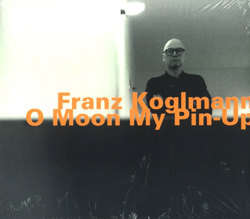
In Stock
Quantity in Basket: None
Log In to use our Wish List
Shipping Weight: 3.00 units
EU & UK Customers:
Discogs.com can handle your VAT payments
So please order through Discogs
Sample The Album:
Phil Minton-voice
Mario Arcari-oboe, english horn, oboe d'amore
Tony Coe-clarinet, tenor saxophone
Angelika Riedl-bassoon
Franz Koglmann-trumpet, flugelhorn
Rudolf Ruschel-trombone
Raoul Herget-tuba
Michael Hintersteininger-guitar
Barre Phillips-bas
Wiener Vokalisten-director
Ursula Fiedler-first soprano
Birgit Konig-second soprano
Lydia Seidl-Vierlinger, Patrick Ermes-alto
James Curry, Alois Glabner-tenor
Erich Klug, Colin Mason-bass
Gustav Bauer-conductor
Click an artist name above to see in-stock items for that artist.
UPC: 752156056621
Label: Hatology
Catalog ID: Hatology566
Squidco Product Code: 9858
Format: CD
Condition: New
Released: 2001
Country: Switzerland
Packaging: Cardstock Gatefold Sleeve
Recorded at the ORF Radio Studio, Vienna, March 8-10, 1997.
"With O-Moon My Pin-Up, Koglmann has undoubtedly enriched his multi-facette oeuvre. Out of the characteristic synthesis of Cool Jazz idiom and Wiener Schule expressionism which had its inception with the founding of the 'Pipetet' has grown over the years a microcosmos of manifold structural links to the entire (western) world of music ranging from Renaissance to improvised music which transcend the co-ordinates of the historic 'Third Stream', not to mention the new dimensions with the tapping of vocal music opens up for Koglmann's soundworld. O-Moon My Pin-Up is not a musical 'judgement' on Ezra Pound, is is neither a condemnation nor an apology. On the contrary, it's a sensitive reflection of the fragile polyphony of speech levels and inflections in Pound's poetry at the time of an existential crisis which is directly connected with the political events surrounding the end of the war."-Peter Niklas Wilson
Artist Biographies
• Show Bio for Phil Minton "Phil Minton comes from Torquay. He played trumpet and sang with the Mike Westbrook Band in the early 60s- Then in dance and rock bands in Europe for the later of part of the decade. He returned to England in 1971, rejoining Westbrook and was involved in many of his projects until the mid 1980's. For most of the last forty years, Minton has been working as a improvising singer in lots of groups, orchestras, and situations, all over the place. Numerous composers have written music especially for his extended vocal techniques. He has a quartet with Veryan Weston, Roger Turner and John Butcher, and ongoing duos, trios and quartets with above and many other musicians. Since the eighties, His Feral Choir, where he voice-conducts workshops and concerts for anyone who wants to sing, has performed in over twenty countries." ^ Hide Bio for Phil Minton • Show Bio for Mario Arcari "The considerable variety of his interests and artistic experiences, his versatility as far as his professional and teaching commitments are concerned, together with his sound academic background have made Mario Arcari into a very special musician on the Italian scene. After having completed his studies (in 1977 he graduated in Oboe from the G. Verdi Conservatory in Milan with Maestro Visai), and his first engagements in symphonic and operatic orchestras (at RAI, Pomeriggi Musicali, Angelicum, and Orchestra Regionale delle Marche), he began to patronize different musical milieus: from refined avant-garde to jazz, from folk music to songwriting, and as a composer of soundtracks for plays and ballet, into a flow of artistic partnerships and significant encounters that have led him to play the clarinet, the saxophone, the piano, recorders and countless other wind instruments coming from all over the world in addition to the oboe and the English horn. In the '80s he was a member of one of the first "heterodox" Italian jazz orchestras, Dino Mariani's DOM, of G. Mazzon's Gruppo Contemporaneo, and of R. Ottaviano's "Six Mobiles". Since 1986 he has been part of every artistic production by Franz Kolgmann's "Pipetett" in Vienna along with musicians like Paul Bley, Steve Lacy, Ran Blake, Tony Coe, Barre Philips, Radu Malfatti, and Phil Minton,Butch Morris, Guus Janssen, Ernst Reijseger and Gerry Hemingway a.o. He's active also as classical player in chamber-music ensembles performing music by Louis Andriessen, Steve Reich, Giorgio Battistelli, Piero Milesi, Pietro Pirelli for "Nuova Consonanza", "Ars Ludi" and "Sentieri Selvaggi" in a number of concerts. He has taken part in some of the most important Italian pop artists' recordings and tours: Fabrizio De Andrè, Ivano Fossati, Vinicio Capossela, Fiorella Mannoia, Gino Paoli, Massimo Ranieri and Tosca and many others. His research concerning folk music made him play with names like Moni Ovadia, Mauro Pagani, Demetrio Stratos, Teresa de Sio, AREA, Canzoniere del Lazio, and PFM. He has held Master's Degree lectures on the "Third Stream" at the Conservatory of Brescia, at the Conservatory of Fermo, at the Conservatory of Piacenza, and at Liceo Musicale in Parma." ^ Hide Bio for Mario Arcari • Show Bio for Tony Coe "Anthony George Coe (born 29 November 1934) is an English jazz musician who plays clarinet, bass clarinet, flute, and soprano, alto, and tenor saxophones. Coe began his performing career playing with Humphrey Lyttelton's band from 1957 to 1962. In 1965 he was invited to join Count Basie's band ('I'm glad it didn't come off - I would have lasted about a fortnight') and has since played with the John Dankworth Orchestra, the Kenny Clarke-Francy Boland Big Band, Derek Bailey's free improvisation group Company, Stan Tracey, Michael Gibbs, Stan Getz, Dizzy Gillespie, and Bob Brookmeyer, and performed under Pierre Boulez as well as leading a series of groups of his own, including Coe Oxley & Co with drummer Tony Oxley. He played clarinet on Paul McCartney's recording of "I'll Give You a Ring" released in 1982 and saxophone on John Martyn's 1973 album Solid Air. Coe has also worked with the Matrix, a small ensemble formed by clarinettist Alan Hacker, with a wide-ranging repertoire of early, classical, and contemporary music, the Danish Radio Big Band, Metropole Orchestra and Skymasters in the Netherlands. Coe has recorded on soundtracks for several films, including Superman II, Victor/Victoria, Nous irons tous au paradis, Leaving Las Vegas, Le Plus beau métier du monde and The Loss of Sexual Innocence. He also composed the film score for Camomille. In 1975 a grant from the Arts Council enabled him to write Zeitgeist, a large-scale orchestral work fusing jazz and rock elements with techniques from European Art Music. He received an honorary degree and the Danish Jazzpar Prize (1995)." ^ Hide Bio for Tony Coe • Show Bio for Franz Koglmann "Austrian trumpeter Franz Koglmann (1947) debuted in the 1970s. Bill Dixon's Opium contained the 17-minute For Franz (august 1976) performed by a quintet with two trumpets (Dixon and Koglmann), tenor saxophone, bass (Alan Silva) and percussion. The rest of the album (recorded between december 1975 and november 1976), contains compositions by Koglmann and features Franz Koglmann on flugelhorn and Steve Lacy on soprano sax except one piece that is an early electronic experiment with Gerd Geier on computer and Toni Michlmayr on bass. Koglmann founded the Chamber Jazz Emsembles Pipetet that debuted with Schlaf Schlemmer Schlaf Magritte (december 1984), a vehicle for his brainy scores that embedded everything from Arnold Schoenberg's dodecaphony to swing to free jazz, all done with a Dadaist attitude worthy of Pere Ubu (notably in the four-movement Tanzmusick Fuer Paszstueckem). Evolving through fragmented albums such as Ich (october 1986), his manyfold art of composition and deconstruction bloomed on the nine-movement suite The Use of Memory (october 1990), almost a colossal compendium of 20th century music. Orte Der Geometrie (november 1988) featured alto saxophonist Guillermo Gregorio, soprano saxophonist Roberto Ottaviano, Jean-Christophe Mastnak on French horn, bassist Klaus Koch, trombonist Rudolf Ruschel, tuba player Raoul Herget, clarinetist Martin Schelling, pianists Ran Blake and Robert Michael Weiss, oboe player Mario Arcari, guitarist Burkhard Stangl, drummer Fritz Hauser, and "conductor" Gustav Bauer. A White Line (november 1989) was a collaboration with an ensemble conducted by Gustav Bauwer: Jean-Christoph Mastnak (flugelhorn), Raoul Herget (tuba), Mario Arcari (oboe), Tony Coe (clarinet and tenor sax), Helmut Federle (accordion), Paul Bley (piano), Burkhard Stangl (guitar), Klaus Koch (bass), and Gerry Hemingway (drums). A theorist not so much of post-modern but of post-classical music, Koglmann continued to rehearse a cryptic vision of music on albums such as L'Heure Bleue (april 1991) only to unleash another massive, powerful reconceptualization of the century's music with Cantos I-IV (october 1992) for orchestrated improvisers. Koglmann had coined a moving music of contradictions, misunderstandings and, ultimately, of mistakes. His monumental and demented synthesis of improvised and composed music continued on O Moon My Pin Up (march 1997), explicitly dedicated to poet Ezra Pound. After Make Believe (november 1998) for a quintet, he also ventured outside chamber music with the electroacoustic opera Fear Death By Water (march 2003) and the "imaginary play" Let's Make Love (september 2004). One of the greatest composers of his generation, Koglmann metabolized the past in order to create the future. Lo-lee-ta (2009) was inspired by Vladimir Nabokov's texts and performed by the Monoblue Quartet (Tony Coe on clarinet/alto saxophone, Ed Renshaw on guitar, Peter Herbert on bass). Join! (Orf, 2014), the first album in five years, is a sci-fi opera, premiered in may 2013, for seven opera singers and a chamber ensemble. G(ood)luck (april 2015) documents a trio with Mario Arcari on English horn and oboe, and Attila Pasztor on cello." ^ Hide Bio for Franz Koglmann • Show Bio for Rudolf Ruschel Rudolf Ruschel is an Austrian trombonist, known for the group Franz Koglmann Pipetett, Franz Koglmann Quartett, Pipe Trio, Reform Art Orchestra. ^ Hide Bio for Rudolf Ruschel • Show Bio for Raoul Herget Raoul Herget is an Austrian tubist, born 11 November 1957. He is known for the groups Franz Koglmann Pipetett, Franz Koglmann Quartett, Pipe Trio, Reform Art Orchestra, and Steve Lacy+16. ^ Hide Bio for Raoul Herget • Show Bio for Barre Phillips "Barre Phillips (born October 27, 1934 in San Francisco, California) is a jazz bassist. A professional musician since 1960, he migrated to New York City in 1962, then to Europe in 1967.[1] Since 1972 he has been based in southern France where in 2014 founded the European Improvisation Center He studied briefly in 1959 with S. Charles Siani, Assistant Principal Bassist with the San Francisco Symphony During the 1960s he recorded with (among others) Eric Dolphy, Jimmy Giuffre, Archie Shepp, Peter Nero, Attila Zoller, Lee Konitz and Marion Brown.[1] Phillips' 1968 recording of solo bass improvisations, issued as Journal Violone in the USA, Unaccompanied Barre in England, and Basse Barre in France, is generally credited as the first solo bass record. A 1971 record with Dave Holland, Music from Two Basses, was probably the first record of improvised double bass duets.[2] In the 1970s he was a member of the well-regarded and influential group The Trio with saxophonist John Surman and drummer Stu Martin.[1] In the 1980s and 1990s he played regularly with the London Jazz Composers Orchestra led by fellow bassist Barry Guy. He worked on soundtracks of the motion pictures Merry-Go-Round (1981), Naked Lunch (1991, together with Ornette Coleman) and Alles was baumelt, bringt Glück! (2013).[3] He has also worked with (among many others) bassists Peter Kowald and Joëlle Léandre, guitarist Derek Bailey, clarinetists Theo Jörgensmann and Aurélien Besnard, saxophonists Peter Brötzmann, Evan Parker and Joe Maneri, and pianist Paul Bley. Barre is the father of rock guitarist Jay Crawford from the band Bomb, of the bassist Dave Phillips and of singer Claudia Phillips, who was a one-hit wonder in France in 1987 with "Quel souci La Boétie". " ^ Hide Bio for Barre Phillips
7/9/2025
Have a better biography or biography source? Please Contact Us so that we can update this biography.
7/9/2025
Have a better biography or biography source? Please Contact Us so that we can update this biography.
7/9/2025
Have a better biography or biography source? Please Contact Us so that we can update this biography.
7/9/2025
Have a better biography or biography source? Please Contact Us so that we can update this biography.
7/9/2025
Have a better biography or biography source? Please Contact Us so that we can update this biography.
7/9/2025
Have a better biography or biography source? Please Contact Us so that we can update this biography.
7/9/2025
Have a better biography or biography source? Please Contact Us so that we can update this biography.
Track Listing:
1. Introduction 0:55
2. First Movement, Clouds: I 1:56
3. First Movement, Clouds: II a 1:51
4. First Movement, Clouds: II b 1:34
5. First Movement, Clouds: II c 2:13
6. First Movement, Clouds: III 4:41
7. Second Movement, Cassandra: IV 3:37
8. Second Movement, Cassandra: V 4:36
9. Second Movement, Cassandra: VI 0:44
10. Second Movement, Cassandra: VII 5:10
11. Second Movement, Cassandra: VIII 1:44
12. Third Movement, Distinctions: IX 5:33
13. Third Movement, Distinctions: X 9:08
Hat Art
Improvised Music
European Improvisation, Composition and Experimental Forms
Unusual Vocal Forms
Free Improvisation
Search for other titles on the label:
Hatology.







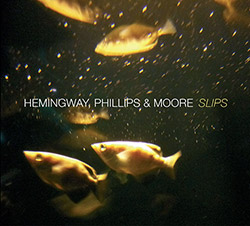


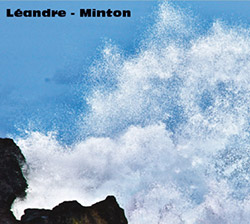


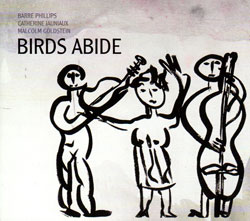
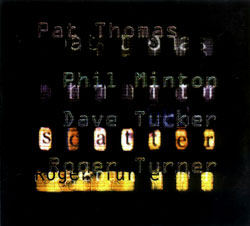
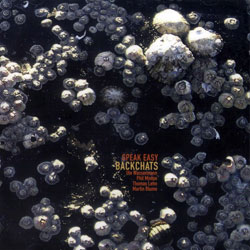
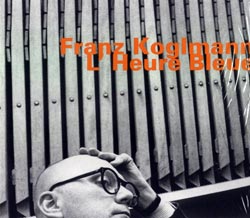
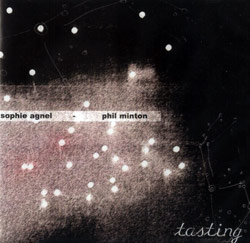
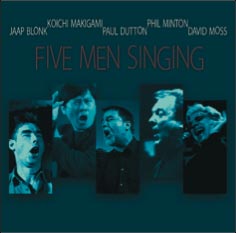
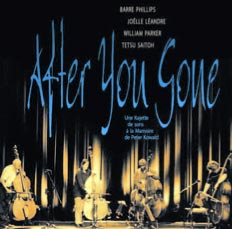
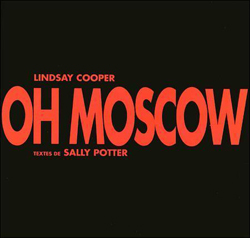
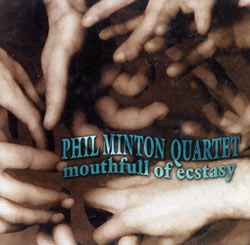

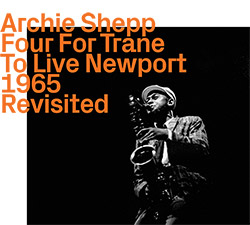
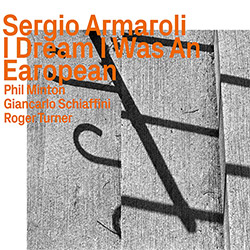
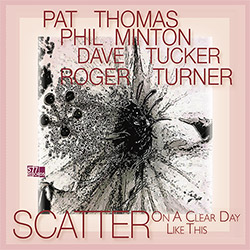
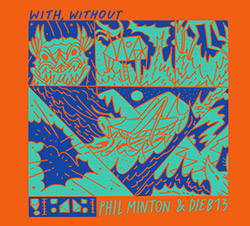




![BlueRing Improvisers: Materia [2 CDs]](https://www.teuthida.com/productImages/misc4/36513.jpg)








![Wheelhouse (Rempis / Adasiewicz / McBride): House And Home [VINYL]](https://www.teuthida.com/productImages/misc4/36462.jpg)
![+DOG+: The Light Of Our Lives [2 CDs]](https://www.teuthida.com/productImages/misc4/36009.jpg)


![Parker, Evan / Jean-Marc Foussat: Insolence [VINYL]](https://www.teuthida.com/productImages/misc4/36398.jpg)










![Deupree, Jerome / Sylvie Courvoisier / Lester St. Louis / Joe Morris: Canyon [2 CDs]](https://www.teuthida.com/productImages/misc4/36404.jpg)



![Eventless Plot | Haarvol: The Subliminal Paths [CASSETTE + DOWNLOAD]](https://www.teuthida.com/productImages/misc4/36232.jpg)










![Eventless Plot | Francesco Covarino: Methexis [CASSETTE + DOWNLOAD]](https://www.teuthida.com/productImages/misc4/36231.jpg)



![Das B (Mazen Kerbaj / Mike Majkowski / Magda Mayas / Tony Buck): Love [VINYL]](https://www.teuthida.com/productImages/misc4/36329.jpg)


![Eternities: Rides Again [CASSETTE]](https://www.teuthida.com/productImages/misc4/36247.jpg)
![Lopez, Francisco: Untitled (2021-2022) [2 CDs]](https://www.teuthida.com/productImages/misc4/36438.jpg)






![Money : Money 2 [2 CDs]](https://www.teuthida.com/productImages/misc4/35894.jpg)




![Klinga, Erik: Elusive Shimmer [VINYL]](https://www.teuthida.com/productImages/misc4/36258.jpg)
![CHANGES TO blind (Phil Zampino): Volume 9 - I Wave on a Fine Vile Mist [CD + DOWNLOAD]](https://www.teuthida.com/productImages/misc4/36061.jpg)

![Wallmart / Rubbish: Asset Protection [split CD]](https://www.teuthida.com/productImages/misc4/35900.jpg)


![+Dog+: The Family Music Book Vol. 5 [2 CDs]](https://www.teuthida.com/productImages/misc4/35897.jpg)
![Kuvveti, Deli : Kuslar Soyledi [CASSETTE w/ DOWNLOAD]](https://www.teuthida.com/productImages/misc4/36107.jpg)

![Brown, Dan / Dan Reynolds: Live At The Grange Hall [unauthorized][CASSETTE]](https://www.teuthida.com/productImages/misc4/36245.jpg)








![Palestine, Charlemagne / Seppe Gebruers: Beyondddddd The Notessssss [VINYL]](https://www.teuthida.com/productImages/misc4/36206.jpg)
![Palestine, Charlemagne / Seppe Gebruers: Beyondddddd The Notessssss [NEON GREEN VINYL]](https://www.teuthida.com/productImages/misc4/36207.jpg)

![Laubrock, Ingrid: Purposing The Air [2 CDs]](https://www.teuthida.com/productImages/misc4/35639.jpg)

![Yoko, Ono / The Great Learning Orchestra: Selected Recordings From Grapefruit [2 CDs]](https://www.teuthida.com/productImages/misc4/35841.jpg)









![Zorn, John / JACK Quartet: The Complete String Quartets [2 CDs]](https://www.teuthida.com/productImages/misc4/35609.jpg)

![Lonsdale, Eden: Dawnings [2 CDs]](https://www.teuthida.com/productImages/misc4/35480.jpg)



![Sorry For Laughing (G. Whitlow / M. Bates / Dave-Id / E. Ka-Spel): Rain Flowers [2 CDS]](https://www.teuthida.com/productImages/misc4/35985.jpg)

![Rolando, Tommaso / Andy Moor : Biscotti [CASSETTE w/ DOWNLOADS]](https://www.teuthida.com/productImages/misc4/36106.jpg)


![Electric Bird Noise / Derek Roddy: 8-10-22 [CD EP]](https://www.teuthida.com/productImages/misc4/35970.jpg)








![Elephant9 : Mythical River [VINYL]](https://www.teuthida.com/productImages/misc4/34624.jpg)



![Elephant9 with Terje Rypdal: Catching Fire [VINYL 2 LPs]](https://www.teuthida.com/productImages/misc4/35355.jpg)
![Deerlady (Obomsawin, Mali / Magdalena Abrego): Greatest Hits [VINYL]](https://www.teuthida.com/productImages/misc4/34876.jpg)







![Surplus 1980: Illusion of Consistency [CD]](https://www.teuthida.com/productImages/misc4/35069.jpg)
![Staiano, Moe: Away Towards the Light [VINYL + DOWNLOAD]](https://www.teuthida.com/productImages/misc4/35037.jpg)
![Coley, Byron: Dating Tips for Touring Bands [VINYL]](https://www.teuthida.com/productImages/misc4/17906.jpg)

![Lost Kisses: My Life is Sad & Funny [DVD]](https://www.teuthida.com/productImages/misc4/lostKissesDVD.jpg)